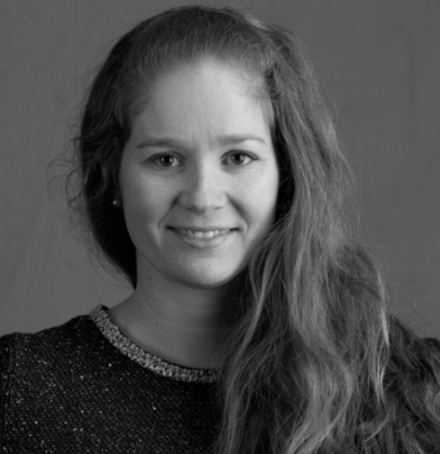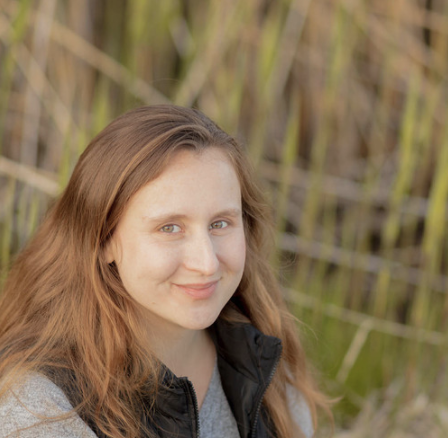At 23andMe, our mission is to help people access, understand, and benefit from the human genome. Our postdoc program speaks to our values by conducting research that allows people to benefit from the human genome. Qualified postdocs leading innovative projects can help push our mission forward, translating great research into great discovery.
As a leading consumer genetics and research company, 23andMe has accumulated the world’s largest database of genotypic and phenotypic information. This data has led to over 200 publications to date and enables our Therapeutics team to discover and develop new treatments that can offer significant benefits to patients with serious, unmet medical needs.
|
Genetic and environmental characteristics of 'Long COVID'
| Since the start of the pandemic, 23andMe has emerged as a leader in understanding genetic and environmental contributions to COVID-19 risk. To date, over 1.5 million individuals have completed our COVID-19 baseline survey, and over 105K have completed our long COVID survey. While we have already published our genetic findings for COVID-19 susceptibility in top level journals (Nature Genetics), there is more to discover. As the pandemic enters this new stage, the focus of the scientific and clinical community shifts to “long COVID”-- chronic, often debilitating sequelae of the acute infection. We currently have in-depth symptomology and disease severity data on tens of thousands of long COVID cases. Due to the chronic nature of long COVID and potential application to other post-viral illnesses-- including many “mystery diagnoses” in the immune space-- this area of inquiry could be a fruitful source of descriptive and genetic discoveries. |
| Postdoc: Ninad Chaudhary | Ninad joined 23andMe in 2023 as a postdoctoral research fellow studying long COVID. Prior to joining 23andMe, he was a postdoctoral research fellow at The University of Texas Health Science Center at Houston where he conducted research on the genetics of cardiometabolic traits using population-based consortium studies. He earned his Doctorate in Medicine from Maharashtra University of Health Sciences, MPH in Community Health from West Chester University of Pennsylvania, and his PhD in Epidemiology from the University of Alabama at Birmingham. |
| Mentor: Stella Aslibekyan | Stella joined 23andMe in 2018. She is involved in study design, data collection, and statistical analyses of 23andMe phenotypes. Previously, Stella was an associate professor of epidemiology at the University of Alabama and a principal investigator on several NIH- and foundation-supported grants, focusing on genetic and environmental factors in the etiology of cardiovascular disease. She earned her PhD in epidemiology at Brown University. |
|
Parkinson Disease Research Program
| In 2009, 23andMe launched the Parkinson Disease Research Program with the goal of jump-starting the world’s largest study in the disease. Today, we have the genetic information of 30K+ customers with Parkinson disease, we provide 2 FDA-reports to inform customers whether they are carriers of two pathogenic dominant variants linked to Parkinson Disease, and have contributed to over 30+ publications. Our 2 post-docs are funded by the Michael J. Fox Foundation to analyze data collected in past collaborative studies. Our focus of our first project is to identify people on the brink of Parkinson disease and better understand who is at risk of developing dementia, using longitudinal data of our customers collected within the Fox Insight and 23andMe databases. The focus of our second project is to describe the microbial signature of Parkinson disease, by studying the stool and oral microbiome samples in our customers. Both projects will integrate phenotypic and genotypic data to understand the role of our genes in Parkinson disease. |
|
Phenotypic and genotypic longitudinal analysis in Parkinson disease
Postdoc: Matt Kmiecik |
Matt joined 23andMe in 2022 as a postdoctoral fellow working with the Parkinson's Disease (PD) team to understand the genotypic and phenotypic markers of PD progression. He is a Chicagoland native who completed his undergraduate degree in Psychology at Loyola University Chicago and a PhD in Cognition and Neuroscience at The University of Texas at Dallas. Prior to joining 23andMe, he completed a postdoctoral fellowship in pain research at NorthShore University HealthSystem/The University of Chicago where he studied how multimodal sensory sensitivity conveys greater risk for developing chronic pelvic pain. |
|
The microbiome in Parkinson disease
Postdoc: Keaton Stagaman |
Keaton joined 23andMe in 2022 as a postdoctoral fellow researching the connection between Parkinson's disease and the gut microbiome. He completed his undergraduate degree in Ecology and Evolutionary Biology at the University of California, Santa Cruz and his PhD in Host-microbe ecology at the University of Oregon. Previous postdoctoral work at Oregon State University included studying the connections between the microbiome and behavioral outcomes. |
| Mentor: Lucy Kaufmann | Lucy joined 23andMe in 2022 as the Principal Scientist for the Parkinson’s Disease Program. Previously, she was an Associate Professor in the Department of Neurology at New York University School of Medicine. She spent 15-years studying the non-motor features of Parkinson disease in the prodromal phases. She has published 100+ research articles, as well as reviews and book chapters. She gained her PhD in Cardiovascular Physiology at the University of Leeds, England. |
|
Complex disease in cohorts of non-European ancestry
Team: Research | 23andMe has one of the largest non-European BioBanks in the world as nearly 2.5 million of our research participants have substantial non-European ancestry. Currently, the majority of published genetic studies are focused on cohorts of European ancestry, which not only limits understanding of genetics underlying complex diseases but also perpetuates health disparities. Through analyzing 23andMe’s large scale genetics and deep phenotype data, we are able to provide novel insights about complex disease and will help promote health equity for underrepresented populations. We are looking for a postdoc fellow to join us on this exciting research project. |
| Co-Mentor: Wei Wang | Wei joined 23andMe in 2018 and is responsible for developing and implementing statistical and machine learning methods for analyzing 23andMe’s genomic and phenotypic data. Prior to 23andMe, Wei received his PhD in Statistics from the University of Chicago, where his research focused on statistical methods on dimension reduction, graphical model and predictive model. |
| Co-Mentor: Yunxuan Jiang | Yunxuan joined 23andMe in 2017. She is responsible for developing and implementing novel methodologies to get insights from 23andMe’s genetic database. She received her M.S. and Ph.D. in Biostatistics from Emory University, where her research focused on developing statistical methods for next generation sequencing studies. |
Ancestry R&D Postdoc, Kasia Bryc: 2013-2014

|
The goals of my postdoctoral research at 23andMe were to
understand how genetically inferred ancestry compares
with
self-reported ancestry, and better understand the
patterns
of ancestry across the United States. The dataset
comprised
of 23andMe customers who have consented to participate
in
research has allowed for a more continuous geographic
study
of individuals from across the United States, to create
a
genetic portrait that illustrates some of the complex
cultural and social history of America, to illuminate
the
role of ancestry and admixture in shaping human genetic
variation.
Publication |
Genomics R&D
Postdoc,
Karl Heilbron: 2016-2019

|
23andMe had genotyped more
than 19,000 people with a self-reported diagnosis of
Parkinson's disease (PD). Thanks in part to
collaborations with the Michael J. Fox Foundation,
my
role was to mine this unique resource, establish a
network of academic collaborators, and publish my
findings.
Publication |
Ancestry R&D Postdoc, Éadaoin Harney:
2020-2022

|
My research focuses on developing an approach to identify connections shared between present-day people in 23andMe’s massive genetic database and historical populations using ancient DNA. |
Diversity, equity, and inclusion at 23andMe fosters a workplace that embodies respect and transparency, helps us empower one another, and provides access to opportunity for everyone. Learn how you will experience diversity, equity, and inclusion at 23andMe.
23andMe has all postdoc projects approved prior to hiring. Positions will include work in labs, data science, computational biology, or translational biology. All applicants will be evaluated on their prior experience and fit for the incoming year’s projects.
All applicants are encouraged to apply.